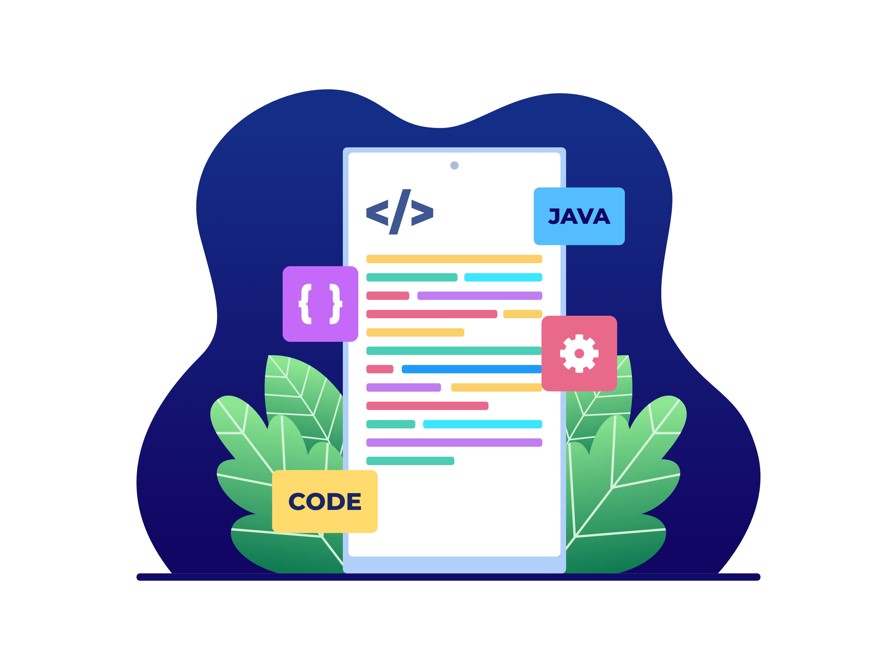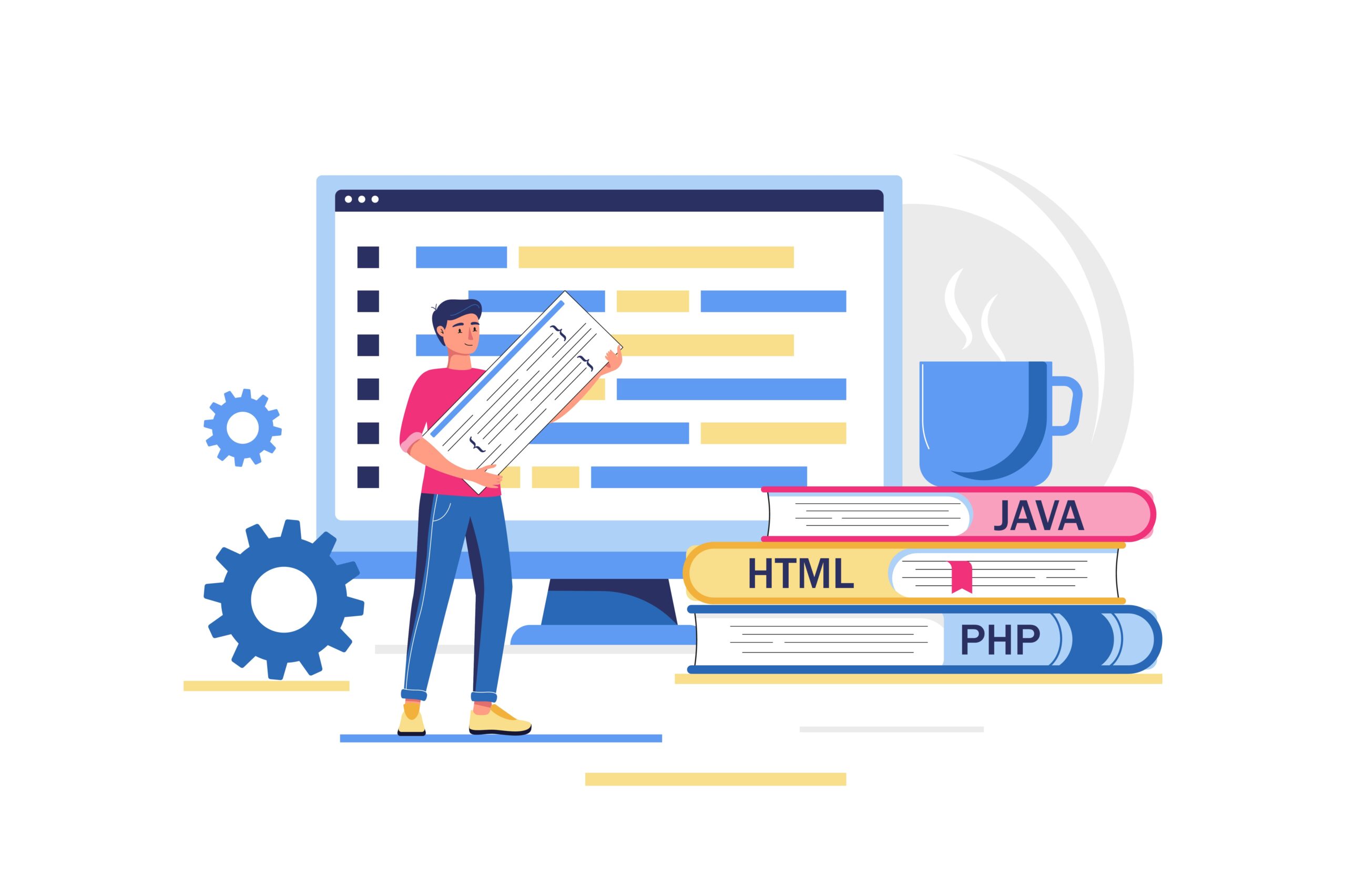Top programming languages 2023
Top programming languages 2023
Programming languages are the backbone of software development, and choosing the right language can make all the difference in the success of a project. With so many programming languages available, it can be difficult to decide which one is more important to learn and use. In this article, we will take a comprehensive look at some of the most important programming languages in use today. Whether you are a beginner or an experienced developer, understanding the most important programming languages can help you become a more versatile and valuable member of any development team.
Take a look at some types of programming languages:
Best programming languages
- Python
- Java
- JavaScript
- HTML and CSS
- C
- C++
- C#
- Ruby
- PHP
- SQL
- Swift
- Go

Before you start using one of them you should know ( why they are used? )
1. Python
Python is a high-level, interpreted programming language that is widely used for a variety of applications, ranging from web development and data analysis to scientific computing and artificial intelligence. Renowned for its straightforwardness, clarity, and user-friendliness, this language proves to be a perfect choice for both novices and experienced practitioners. Python’s flexibility and extensive libraries make it a popular choice for developers looking to build complex applications quickly and efficiently. The language’s popularity has also led to a large and active community of developers who contribute to its development and provide support through online forums and resources. With its versatility and powerful capabilities, Python is a valuable tool for anyone looking to solve problems and automate tasks in their work or personal life.
2. Java
Java exhibits remarkable versatility as a programming language, capable of catering to a diverse array of applications. One of the key benefits of Java is its object-oriented nature, which allows developers to write modular, reusable code. This makes it easier to maintain and update applications over time, and can lead to faster development times and reduced costs.
Java also has a wide range of applications in the enterprise space. It is commonly used for developing large-scale, mission-critical applications such as banking systems, supply chain management systems, and healthcare information systems. Java’s robustness, security, and scalability make it an ideal choice for these types of applications.
In addition to its enterprise applications, Java is also widely used in the mobile application development space. Android, the world’s most widely used mobile operating system, is built on top of the Java programming language. This has led to a large and active community of Android developers who use Java to write mobile applications for a wide range of devices.
Java is also a popular choice for developing web applications. Java-based web frameworks such as Spring and Struts provide developers with a range of tools for building dynamic, scalable web applications. Additionally, Java’s support for multi-threading makes it well-suited for developing real-time web applications.
Finally, Java’s open-source nature and strong community make it an excellent choice for developers who want to collaborate and share their work. There are many open-source libraries and frameworks available for Java, and the Java Community Process (JCP) provides a platform for developers to contribute to the development of the Java platform itself.
Overall, Java’s versatility, enterprise applications, mobile development, web development, and open-source nature make it a powerful tool for developers looking to build a wide range of applications.
3. JavaScript
JavaScript is a powerful and versatile programming language that can be used for a wide range of applications. One of the key benefits of JavaScript is its ability to manipulate the Document Object Model (DOM), which is the programming interface for HTML and XML documents. This allows developers to create dynamic web pages that respond to user input and events.
JavaScript also provides support for asynchronous programming, which allows web pages to load and update content without interrupting the user’s experience. This makes it possible to build responsive, interactive web pages that provide a seamless user experience.
In addition to its client-side capabilities, JavaScript is also widely used in server-side development. Node.js, a popular JavaScript runtime, allows developers to use JavaScript to build scalable and efficient server-side applications. This has led to the development of a wide range of JavaScript-based web frameworks and libraries for server-side development, including Express and Hapi.

One of the key advantages of JavaScript is its wide adoption and support. With widespread support from contemporary web browsers, JavaScript stands as a universally embraced language for web development. Additionally, there is a large and active community of developers who contribute to its development and provide support through online forums and resources.
Finally, JavaScript’s popularity has led to the development of a large and rich ecosystem of libraries, frameworks, and tools. Popular JavaScript libraries such as jQuery and React provide developers with a range of tools for building dynamic and interactive web applications quickly and easily.
Overall, JavaScript’s versatility, support for asynchronous programming, server-side capabilities, wide adoption, and rich ecosystem make it an excellent choice for developers looking to build a wide range of web applications.
4. HTML and CSS
HTML and CSS serve as fundamental technologies employed in the realm of web development. HTML, or Hypertext Markup Language, is used to create the structure and content of web pages, while CSS, or Cascading Style Sheets, is used to define the presentation and layout of web pages. Together, these two technologies provide the foundation for building dynamic and interactive web pages.
HTML is a markup language that uses tags to define the structure and content of a web page. Tags are used to define headings, paragraphs, images, links, and other elements of a web page. This allows developers to create structured and semantically meaningful web pages that are accessible to users and search engines.
CSS, on the other hand, is a style sheet language that is used to define the presentation and layout of web pages. CSS allows developers to define the colors, fonts, layout, and other visual aspects of a web page. This makes it possible to create visually appealing and user-friendly web pages that are easy to navigate and use.
One of the key benefits of HTML and CSS is their compatibility with other web technologies. HTML and CSS can be used in conjunction with other programming languages and technologies, such as JavaScript and server-side programming languages, to create dynamic and interactive web applications.
Another advantage of HTML and CSS is their wide adoption and support. These technologies are supported by all modern web browsers, making them a universal language for web development. Additionally, there is a large and active community of developers who contribute to their development and provide support through online forums and resources.

Overall, HTML and CSS are essential technologies for building modern web applications. Their structure and presentation capabilities provide a foundation for creating dynamic and interactive web pages, making them essential tools for web developers.
5. C
C demonstrates remarkable versatility as a programming language, capable of catering to a diverse array of applications. One of the key benefits of C is its low-level control over system resources, which makes it well-suited for writing operating systems, device drivers, and other system-level software. C’s efficiency and performance also make it an excellent choice for developing applications that require high performance, such as scientific computing and game development.
Another advantage of C is its portability. C code can be compiled and run on a wide range of platforms and architectures, making it an ideal choice for developing cross-platform applications. This portability has contributed to the widespread adoption of C in the development of operating systems, such as Linux and macOS, as well as in embedded systems, such as those used in automobiles and industrial control systems.
C is also known for its simplicity and readability, which make it easy to learn and use for both beginners and experienced developers. C code is often more concise and easier to read than code written in other languages, which can lead to faster development times and reduced costs.
Finally, C has a large and active community of developers who contribute to its development and provide support through online forums and resources. This community has contributed to the development of many popular libraries and frameworks for C, such as the OpenGL graphics library and the OpenCV computer vision library.
Overall, C’s low-level control, performance, portability, simplicity, and community make it an excellent choice for developing a wide range of applications, from low-level system programming to high-level applications and games.
6. C++
C++ is a powerful and versatile programming language that is widely used for developing a wide range of applications, including operating systems, games, and scientific simulations. C++ is an extension of the C language, with additional features that make it more powerful and flexible.
One of the key benefits of C++ is its performance. C++ code can be optimized to run efficiently on a wide range of platforms and architectures, making it an excellent choice for developing high-performance applications that require low latency or high throughput.
C++ is also known for its object-oriented programming (OOP) capabilities. OOP allows developers to create modular, reusable code that can be easily maintained and updated. This makes it possible to write complex applications that are easier to read and maintain over time.
Another advantage of C++ is its support for templates, which allow developers to write generic code that can be used with different data types. This makes it possible to write code that is more flexible and reusable, reducing development time and costs.
Finally, C++ has a large and active community of developers who contribute to its development and provide support through online forums and resources. This community has contributed to the development of many popular libraries and frameworks for C++, such as the Boost library and the Qt framework.
Overall, C++’s performance, object-oriented programming capabilities, support for templates, and community make it an excellent choice for developing a wide range of applications, from low-level system programming to high-level applications and games.
7. C#
C# is a modern, object-oriented programming language that is widely used for developing a wide range of applications, including desktop applications, web applications, and games. Developed by Microsoft in the early 2000s, C# is designed to be simple, flexible, and easy to learn.
One of the key benefits of C# is its object-oriented programming (OOP) capabilities. C# allows developers to create modular, reusable code that can be easily maintained and updated. This makes it possible to write complex applications that are easier to read and maintain over time.
C# is also known for its integration with the .NET framework, which provides a powerful set of tools and libraries for developing applications. The .NET framework includes a wide range of features, such as memory management, garbage collection, and thread synchronization, that make it easier to develop complex applications.

Another advantage of C# is its support for asynchronous programming, which allows developers to write code that runs in the background while the user interacts with the application. This makes it possible to develop responsive, interactive applications that provide a seamless user experience.
Finally, C# has a large and active community of developers who contribute to its development and provide support through online forums and resources. This community has contributed to the development of many popular libraries and frameworks for C#, such as the ASP.NET web framework and the Unity game engine.
Overall, C#’s object-oriented programming capabilities, integration with the .NET framework, support for asynchronous programming, and community make it an excellent choice for developing a wide range of applications, from desktop applications to web applications and games.
8. Ruby
Sure, here are a few more things to know about Ruby:
Ruby has a number of built-in features for working with data, including support for arrays, hashes, sets, and ranges. These data structures can make it easy to work with collections of data and perform operations such as filtering, sorting, and aggregation.
Ruby has a number of built-in features for working with files and directories, including support for reading and writing files, creating directories, and deleting files and directories. This can make it easy to perform file-based operations, such as processing log files or generating reports.
Ruby has a number of built-in features for working with databases, including support for SQLite, MySQL, and PostgreSQL. Ruby also has a number of popular ORM (Object-Relational Mapping) frameworks available, such as ActiveRecord, which can simplify the process of working with databases in Ruby.
Ruby has a strong focus on code readability and maintainability, with a number of conventions and best practices available for writing clean, well-organized code. This can make it easier to work with large codebases and collaborate with other developers.
Ruby has a number of popular web development frameworks available, including Ruby on Rails, Sinatra, and Hanami. These frameworks provide a set of tools and conventions for building web applications quickly and efficiently.
Overall, Ruby’s features for working with data, files, and databases, code readability and maintainability, web development capabilities, and more make it an excellent choice for developing a wide range of applications, from web applications to automation to scientific computing and beyond.
9. PHP
PHP, commonly known as Hypertext Preprocessor, is a scripting language extensively employed in web development, specifically tailored to excel in that domain. It’s an open-source language that is easy to learn and use, making it an excellent choice for beginners and experienced developers alike. PHP is often used in conjunction with HTML and CSS to create dynamic web pages that can interact with databases and other web services. It’s also frequently used for server-side scripting, allowing developers to create dynamic web applications that can perform complex operations and handle large amounts of data. PHP has a large and active community of developers, which has contributed to the development of many popular web development frameworks and libraries, such as Laravel and Symfony. Overall, PHP’s ease of use, versatility, and popularity make it an important programming language for web developers to know.
10. SQL
SQL, an acronym for Structured Query Language, is a programming language extensively utilized for efficient management and manipulation of data within relational databases. It’s a declarative language, meaning that developers specify what they want to do with the data, rather than how to do it. SQL is often used in conjunction with database management systems (DBMS) such as MySQL, Oracle, and SQL Server. SQL can be used to create, modify, and delete database tables and records, as well as perform complex operations such as joining multiple tables and grouping data by various criteria. SQL is a powerful language that is essential for anyone who works with databases, and is widely used in a variety of industries, including finance, healthcare, and e-commerce.
11. Swift
Swift is a powerful programming language that was developed by Apple for building software for iOS, macOS, watchOS, and tvOS. It’s a fast and efficient language that is designed to be easy to write and read, with a modern syntax that is similar to other popular programming languages such as Python and Ruby. Swift’s performance is comparable to that of C++, making it an excellent choice for building high-performance applications. Swift also comes with a variety of features that make it easier to write safe and reliable code, such as optional types and automatic memory management. Swift has a growing community of developers, and is supported by a wide range of tools and libraries, including the popular iOS development framework, UIKit. Overall, Swift is an essential language for anyone interested in developing software for Apple’s platforms, and is continuing to gain popularity as more developers discover its benefits.
12. Go
Go, also known as Golang, is an open-source programming language that was developed by Google in 2007. Go is a compiled language that is designed to be fast, efficient, and easy to use. It’s particularly well-suited for building large-scale systems and networked applications, thanks to its concurrency features and built-in support for networking and web development. Go’s syntax is simple and easy to read, with a focus on minimizing boilerplate code and providing a consistent and predictable language specification. Go has a growing community of developers, and is supported by a variety of popular tools and libraries, including the popular web development framework, Gin. Overall, Go is a powerful and versatile language that is well-suited for building modern, scalable applications.
The field of programming in general is one of the best fields of work and development, and everyone who works in this field has the ability to think, be creative, and they have high problem-solving skills.
Finally let me recommend you the top 5 programming languages for software engineering which are Java, Python, C++, C# and JavaScript.


